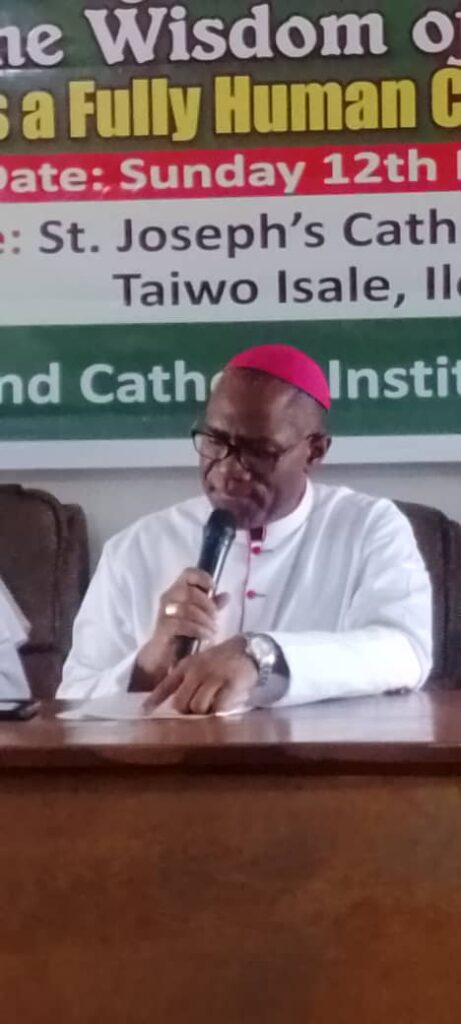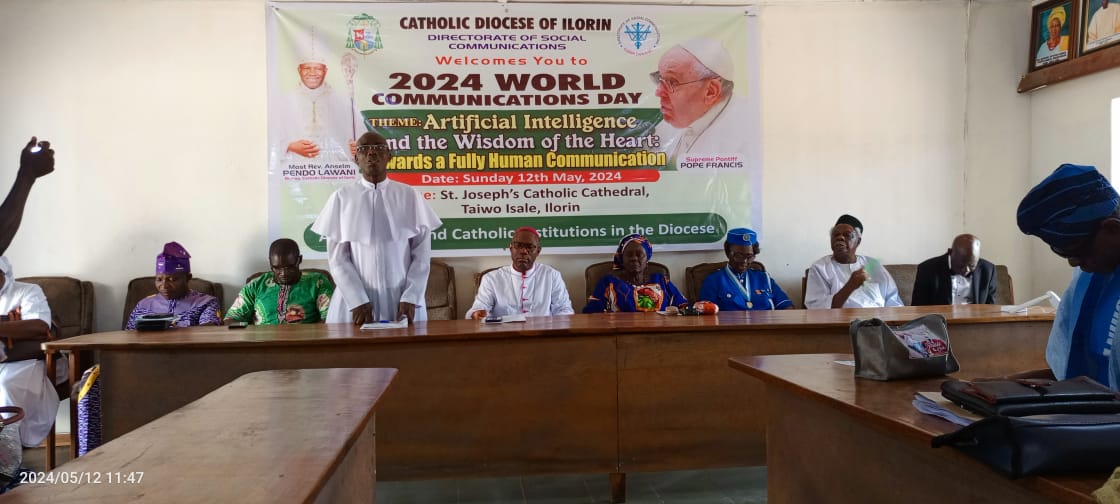
Stephen Olufemi Oni, Ilorin
The Catholic Bishop of Ilorin Diocese, Most Rev’d Anselm Pendo Lawani, has lamented that Nigeria is far behind in technological researches, resulting in the development of robotic science and technology.
The Bishop, who addressed journalists on Sunday on the occasion of the 2024 World Communications Day held at St. Joseph’s Catholic Cathedral, Ilorin, said: “Unfortunately, while advanced nations of the world are delivering on new technology on daily basis, we are still battling with food security challenges, economic sabotage, insecurity, housing deficit, oil exploration/production crises, transportation problems arising from arbitrary fuel price increase, and hyper-inflation, among others.”
Bishop Lawani, therefore, stressed the need for political leaders and indeed all Nigerians to work together in order to overcome these persistent problems, and to also reason along the line of developing the technological manpower so as to contribute meaningfully to Artificial Intelligence (AI) technology.
While urging the federal government to rein in the raging banditry, kidnapping and ritual killings, among other vices, across the country, the Cleric called on the government to invest massively in agriculture and ensure availability of foodstuffs at affordable prices to the citizenry as obtainable in developed countries.
He said Artificial Intelligence, which is an attempt to configure machines to act like human brains, has come to stay in the world, adding that AI, which is indeed a revolution in the realm of technology, does a lot to aid human activities.
He said: “Machines can be created to take decisions and perform simple and complex tasks, but it does not have emotion. Hence, the said ‘machine thinking’ may not be fully rational. In essence, experts in science and technology have now become capable of creating highly sophisticated machines that act as support for thinking, performing tasks more like humans.”
Bishop Lawani, who noted that AI can be of positive influence as much as it can be of negative, depending on its usage, said it can be applied to bridge knowledge gaps by ensuring access to vast repositories of written knowledge from past ages; enabling communication among people who do not share a common language and fostering cross-cultural understanding.
The Cleric added that AI could also be a double-edged sword as it can also be used to spread fake news, thereby disseminating partially or completely false narratives, adding that such narratives, when believed and propagated, could distort reality and perpetuate misinformation in the society.
Bishop Lawani agreed with Pope Francis that “it is extremely important to know that, if in the wrong hands, such tools could lead to disturbing scenarios. Hence, the need to regulate it”.

Leave a Reply